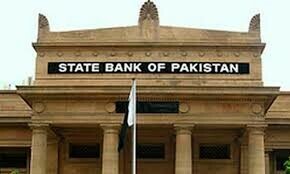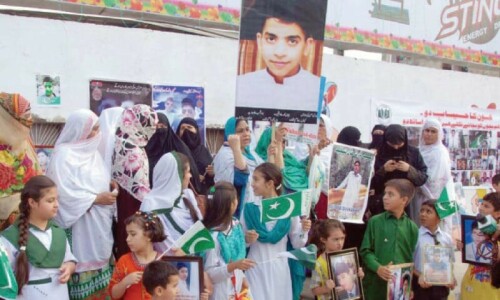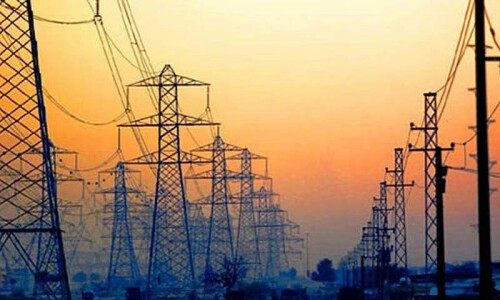The banned militant Balochistan Liberation Army (BLA), which claimed Tuesday's deadly attack on Chinese citizens in Karachi, is a rebel group operating against the Pakistani state in Balochistan.
BLA's stated aim is complete independence for Balochistan. The province has seen a decades-long insurgency against what rebels call the unfair exploitation of resources in the mineral-rich region.
Balochistan borders Afghanistan to the north, Iran to the west and has a long coastline on the Arabian Sea. It has Pakistan's largest natural gas field and is believed to have many more undiscovered reserves.
It is also rich in precious metals including gold, the production of which has grown over recent years.
Pakistani security forces have been the BLA's main focus, but in recent years they have also targeted Chinese interests.
The group demands that all Pakistani security forces withdraw from Balochistan and has suggested negotiations in the presence of an "international guarantor".
It claims its guerrilla fighters are made up of young, educated Baloch who are disillusioned by hardship and being sidelined from economic development.
Under its current guise, the BLA was led by Balach Marri, scion of an influential Baloch family. Security officials said Marri was killed in neighbouring Afghanistan in 2007, where he had established a base and hideout.
After initially being hampered by Marri's death, the BLA has accelerated its attacks, particularly in the last year.
The group says it is currently led by a man named Bashir Zeb Baloch, the organisation's shadowy commander-in-chief about whom little is known.
Most of the BLA's attacks take place in Balochistan or in Karachi. The BLA claimed attacks on the Pakistan Stock Exchange Building in 2020 and the Chinese consulate in 2018 – both in Karachi.
What is the Majeed Brigade?
The Majeed Brigade, which was formed in 2011, is a particularly lethal guerilla cell of the BLA. It was named after a guard of former prime minister Zulfikar Ali Bhutto who was killed while attempting to assassinate the PPP founder. Its presence in Afghanistan is also well documented and even reported by Indian media.
Some allege that the group also maintains sanctuaries in areas along the Pak-Iran border.
Analysis: BLA out to bleed Pakistan economy, Chinese interests
The so-called brigade, which is the suicide squad of the BLA, mostly targets security forces and Chinese interests in Pakistan. It also claimed responsibility for Tuesday's suicide attack outside KU's Confucius Institute.
It has carried out a number of attacks this year, including those targeting military camps in Balochistan’s Naushki and Panjgur districts, where the militants kept security forces engaged for three days.
Read more: An insurgency restructured
Twenty terrorists were killed during clearance operations after the Naushki and Panjgur attacks, the military's media affairs wing had said in a statement, adding that nine security personnel had embraced martyrdom.
Who was the Karachi University attacker?
CCTV footage of Tuesday's attack had shown a burqa-clad woman standing outside the entrance of the Confucius Institute. The woman detonated herself just as the van containing the Chinese nationals neared the institute's entrance.
Raja Umar Khattab, a senior official of the Counter-Terrorism Department (CTD), had said that the suicide bomber, identified as Shari Baloch alias Brimash, was born in Turbat in 1991. She was married and had two children.
He had said that her husband — Dr Haibatan — originally hailed from Kech, was currently doing a public health course at Karachi's Jinnah Postgraduate Medical Centre and was staying at a nearby five-star hotel. However, his wife lived in Gulistan-i-Jauhar with her children.
Khattab said that she and her husband had left their places a week before the attack and the husband’s whereabouts were not known. Raids were being carried out to find the husband and other facilitators, the CTD official had said.
The official had also clarified that the suicide bomber was not a student of KU. He said the woman got all her education up to university level in Balochistan and later she was employed as a government school teacher in Turbat.
Khattab said the outlawed BLA had claimed responsibility for the attack and shared details about the attacker on their social media platforms.
Editorial: Details about woman behind KU suicide bombing are surprising. What do they signify?
Meanwhile, a paternal uncle of Shari, Ghani Parvaaz, while talking to Dawn.com, had said that she belonged to a highly educated and financially prosperous family in Kech.
He had said that many members of their family had held high government positions with her father, Mohammad Hayat, having retired as a registrar in Turbat University while Parvaaz himself was a retired professor and writer.
About her educational and professional record, her uncle said she had completed a Bachelor of Education degree in 2014, a Master of Education degree in 2018 and subsequently a Masters in Zoology from Balochistan University and an MPhil degree from Allama Iqbal Open University's Turbat campus. She was working as a science teacher in a government school in Turbat, Parvaaz added.














































